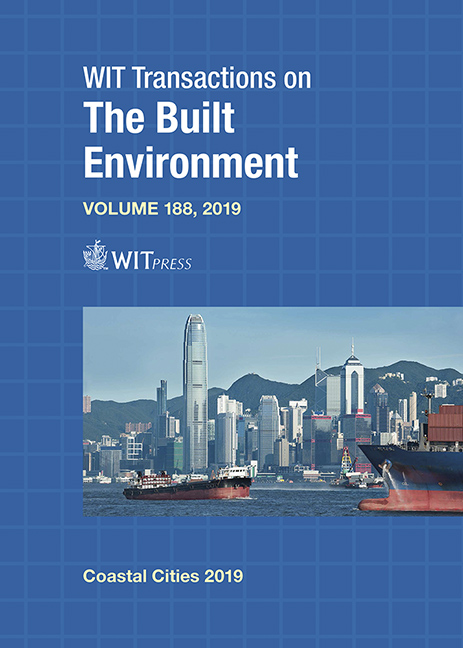COASTAL REGIONAL DEVELOPMENT IN SOUTH AFRICA THROUGH SPECIAL ECONOMIC ZONES
Price
Free (open access)
Transaction
Volume
188
Pages
13
Page Range
177 - 189
Published
2019
Paper DOI
10.2495/CC190161
Copyright
WIT Press
Author(s)
METHEMBE MDLALOSE, SIMON TAYLOR
Abstract
Coastal cities in many parts of the world are usually seen as the most industrialized and developed in their respective regions. However, many of these towns and cities in both the developed and developing world have begun deteriorating, due to their unchanged role of trade facilitation through ports in a fast evolving and technologically innovating society. In the era of post-colonial industrialization some have struggled to drive national economies or even spread development to neighbouring cities and towns through the effects of trickle-down and spread, this is especially prevalent in previously colonialized regions. Interesting to note is the general consensus amongst many scholars that suggests a strong correlation exists between the geographic advantage of the coast and that of industrialization-led economic growth. With this said, it is also equally significant to appreciate that economic benefits sown from the geographical advantage do not come without complexities for many of these coastal cities and towns. As has been largely documented, post-colonial industrial and spatial planning in many of the developing countries, particularly in eastern Asia, has been through environmentally sustainable and pragmatic economic structural reforms and industrial policies by the state, rather than explicit market driven development. The research objectives of the study were two-fold: the study sought to explore the historical context and transformation of coastal cities during the colonial era in China and Malaysia – this section discusses the reforms through Special Economic Zones as a means of reducing spatial inequality. The second part assesses the spatial discourse in South Africa and poses recommendations on the possible revitalization of the coastal region through a spatial targeting approach that encourages spatial diffusion and growth to support the inclusivity of small towns and secondary cities on the south African coastal region.
Keywords
African economy, city planning, coastal cities, coastal development, coastal towns, Special Economic Zones, urban growth, foreign direct investment, post-colonial planning, South Africa





